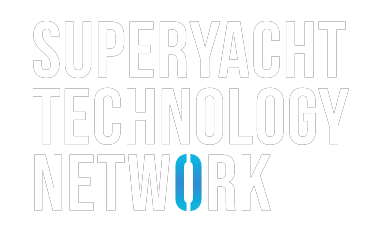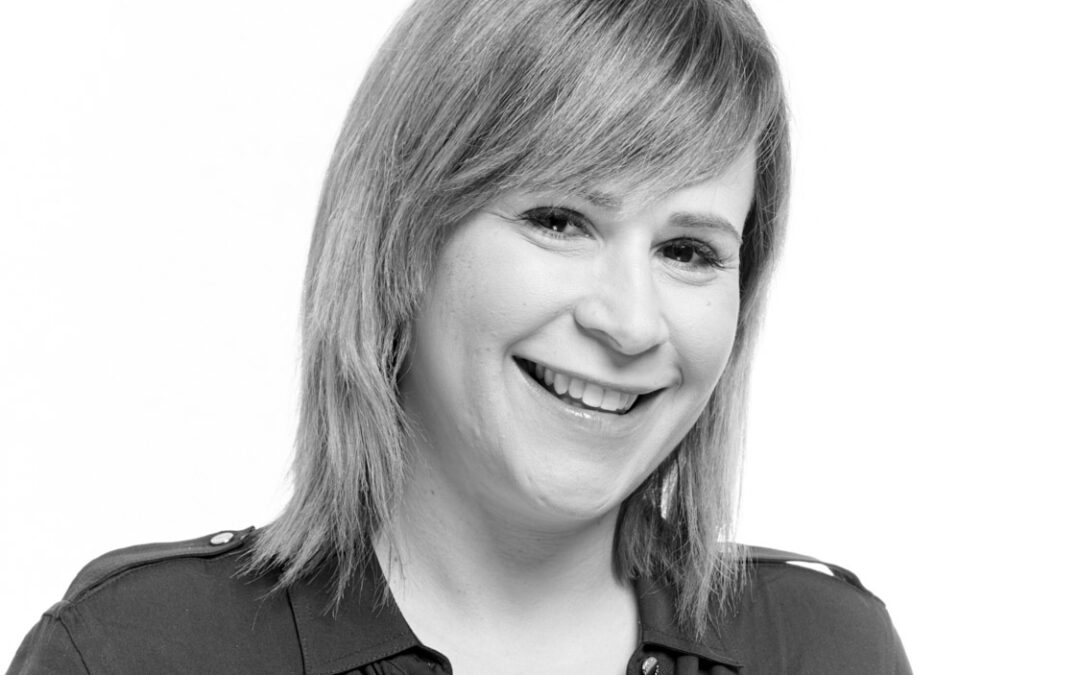Colette Flowerdew-Kincaid catches up with Orbis Yacht’s Sales Director
Superyacht Technology News interviews Venia Zeriti, Sales Director of Orbis Yacht, to find out more about the connectivity business currently disrupting the yachting market. Change is good; especially when it brings first-in-industry solutions which promise easier combined bandwidth management. Read on to find out Venia’s views on the Ka vs Ku debate, HTS opportunities, how to keep ETOs happy, and much, much more.

Can you tell us about the background of Orbis Yacht?
Orbis is 100% owned by Milano Teleport, Italy. It was created in 2015, after the mother company identified the significance of the yachting market in the development of the company as a whole. Thus MT decided to establish not just a business unit, but a whole new independent (though integrated) business entity.
What is your role at your company? Do you have a background in the superyacht industry?
I am the Sales Director of Orbis. Basically, I manage all tasks related with our niche market, always in co-operation with MT.
My service in the yachting market and especially superyachts goes way back. It was as early as 2011 that I got involved in the yachting market, while Milano Teleport was growing fast within it. I had a lot of experts to support me. But I also had hands-on training practically from day one. The market itself gave me my education.
As an expert, in terms of using 4G vs using VSAT when trying to get a great internet connection at sea, what do think is best?
There’s really no conflict here. 4G is a great -and relatively cheap- solution, but its maritime coverage is limited. On the other hand, VSAT service is working practically everywhere at sea, but could be seriously hindered at port due to blockage or local legislation. So, the answer is, the combination of the two, produces the best result.

What makes Orbis Yacht different to other connectivity providers? What are you bringing to market that is new and exciting?
Orbis has two main values: maximise customer satisfaction and minimise administration. We believe that the people on-board yachts are on well-deserved holidays and should be allowed to enjoy themselves as they please. Even allowed to indulge in a bit of luxury. So, Orbis is offering unparalleled coverage, flexibility and technical support to make the customers’ lives on-board the best allowed by technology. As an example, we are the first and only to offer the Newtec experience to the yachting market. We offer now hybrid solutions, with a combination of i-direct and Newtec modems, to equally manage from 1 Mbps services to the astronomical speed of 100 Mbps.
On top of that, the fact that our customers can easily upgrade throughout the season according to their actual bandwidth requirements, even for a single weekend, is what differentiates us from the rest.
Connectivity is such a priority on yachts and shows no sign of stopping. What are your predictions for connectivity requirements in the future, for example in 2050, what do you predict bandwidth requirements will be on a typical superyacht? How will you keep up with these demands?
Connectivity is an issue not just for yachts, but for practically anywhere. Its demand is growing at sea as fast as it is growing on land. So, anticipation for on-board connectivity is nothing less than connectivity on land. We in Orbis are not working just for today, but for the future as well. So, we are always testing new hardware for higher performance, always following the developments of the satellite constellation, always applying new software and always planning ahead. So, if today we can offer 100 Mbps, in the not-so-far future we will offer 350 Mbps, or more, without breaking a sweat.
One thing though is a certainty for 2050 rather than a prediction; that Orbis will still be listening to the customers’ requirement and serving them the very limit of existing technology.
How do you currently make sure you deliver unparalleled global connectivity to your clients?
Being an independent company rather than a satellite provider, we can choose who we work with. We have a network of teleports around the globe that can have direct connection to every and any bird in the sky. So, we use this network to choose the best coverage for each region for every season. Moreover, as blockage is a typical restraint on yachts, we offer a wide range of satellites covering each and every yacht. So practically whichever way she sails, we’ve got her covered.
You said that you pick and choose which satellites you work with – Does Orbis currently work with High Throughput Satellites (HTS)? How do you think HTS will change maritime connectivity as more and more are launched?
Orbis Yacht mother company, Milano Teleport already has the capability to offer this HTS service on specific project requests. According to our CTO, Luca Massaro, one of the main advantages of HTS is that theoretically, once some boundary conditions are fixed, the same remote antenna system could transmit with lower power and could receive a higher signal than a NON-HTS satellite, allowing at the end of the day a lower cost per Mbps for the end customer.
Unfortunately, at the moment we consider that under iDirect networks this advantage cannot be fully exploited, because even using the standard NON-HTS satellites, if properly selected and configured -as we do- you can already achieve extreme efficiencies in both directions. Vice-versa with HTS, each beam will have a smaller coverage and this means that to cover the same region you can cover with just 1 standard NON-HTS satellite, you may need 4 beams. Of course, things may change if you have a technology that allows you to better exploit the higher SNR that you can receive under HTS satellites. Therefore I wouldn’t exclude sponsoring some HTS’s satellites, on a per case basis.
As with all things relatively new, we may talk for a year over HTS, but for now we believe that this is an additional opportunity available in our ever-changing challenging market…

The cost of maintaining a great connection everywhere can be sky high – how do you think costs can be lowered for yachts? What is Orbis doing to facilitate this?
As with every other commodity, cost is a matter of supply and demand. We obviously do not control demand, but we do our best to manage supply. We do not own satellites, which has proved a blessing. We are free to choose our co-operations with satellite constellation owners. And though quality of service is the primary criterion, we look at prices too. As a further service, we always strive to introduce technologies that better manage bandwidth. The best example of this is the hybrid solution of iDirect and Newtec technologies that I mentioned before, to facilitate for all, low, medium and extreme users. These two actions alone, ensure that we can offer our services at most competitive rates. Add to this our flexibility with short-term commitments, and you get the best possible value for your service.
This March edition is our Shipyard Special magazine: do you work a lot with shipyards to ensure new build yachts have great connectivity from the outset?
We do work with shipyards both in Italy and now in Greece. But since our service is agnostic to antenna manufacturers, we can provide seamless connectivity to any yacht, practically at any point in time, at exceptionally short notice.
What is your opinion on the Ka-band vs Ku band satellites debate?
Each band should be judged upon its own merits. The significant difference between the two is the current availability. Ku is long-established for maritime and there are a lot of Ku birds flying out there already. So, there is, almost everywhere, coverage by two or more satellites. Blockage is usually not an issue if your system can handle seamless auto switch from one satellite to the other. Ka, on the other hand, is brutally tested on land, but there few satellites in the sky to support it at sea.
The company offers many different services – which do you find are the most popular services for your superyacht clients and why?
To be honest, I think our customers are most attracted to our flexible contracts, as well as our support services. My colleagues over in the Customer Care department don’t just solve all problems in zero time. They actually prevent them from happening. That is one of the factors that keeps our customers loyal to us. We also offer a dedicated concierge service for yachting which is highly appreciated.

You mentioned your service was highly praised amongst customers, but we have seen in the past ETOs complain about the service they get from their connectivity provider. How does your Customer Care department make sure it keeps the ETOs happy?
Admittedly, there have been for all of us in the market, complaints from some customers. But considering that satellite technology is probably the most advanced technology available today, it is only reasonable for some of the end-users to have difficulty in understanding its complexity and parameters of smooth operation. Having said that, it is our policy to keep the customer satisfied, so our customer service team upon receiving a complaint, or even a simple query, usually requests for some extra technical details that we know are easily found and communicated by the non-experts on board or at the office. With this information, along with our own over-the-air tools, we can reasonably quickly identify the problem and remedy it from our teleport or advise the ship for step-by-step action. In the very rare cases where we have hardware failure, we do our best to have it fixed at the very next port of call.
But the three critical actions we perform to keep the customer’s peace of mind, are to monitor everything at all times to prevent a fault before it happens, to inform them on the progress of our actions during the fault and confirm with the customer good working order after the problem is remedied. This way, the customer knows that even though failures can and will happen, there’s always someone watching over them.
What measures does the Care department take to proactively prevent issues from happening?
Every modem connected to our system, which is monitored 24/7. Usually we identify a potential problem long before the user does. And we prevent it from happening either through our infrastructure or by providing an early warning and suggesting an appropriate solution to the customer.
If you can say, what are the big focuses for your company’s R&D department currently? Are there any exciting projects that you are currently working on that you can tell us about?
Unlike most of our esteemed competitors, we do not just try to improve our existing solutions. We work on whatever we already have built of course, but we also love to test and try new ideas. The most exciting of these developments, which I believe is fairly new, is the adoption of a hybrid platform on-board. We install not one, but two modems. Your typical i-direct X7 plus the Newtec modem for managing effectively any bandwidth, low or high.
Is there anything else you want to tell us about Orbis Yacht?
I think we pretty much covered everything. I’m really excited about the upcoming and very challenging Mediterranean yachting season and welcoming everyone on board Orbis Yacht.
Thank you, Venia.
Visit Orbis
Want to hear more from Superyacht Technology News? Subscribe to our magazine free.

